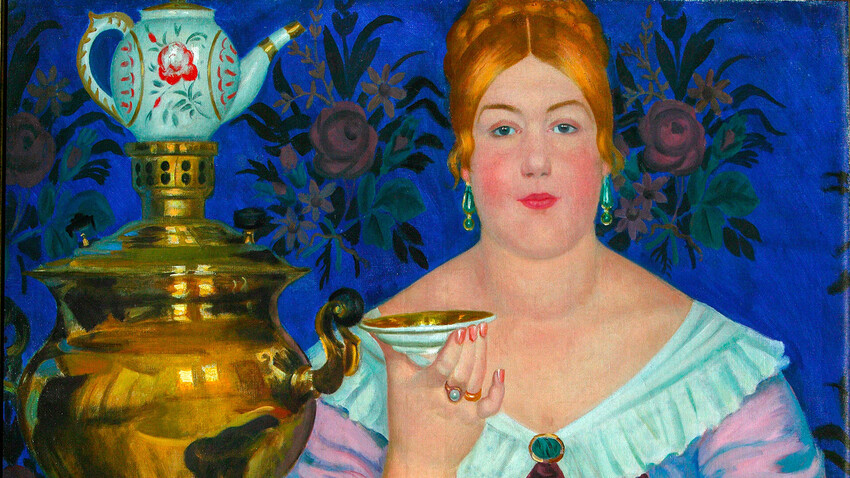
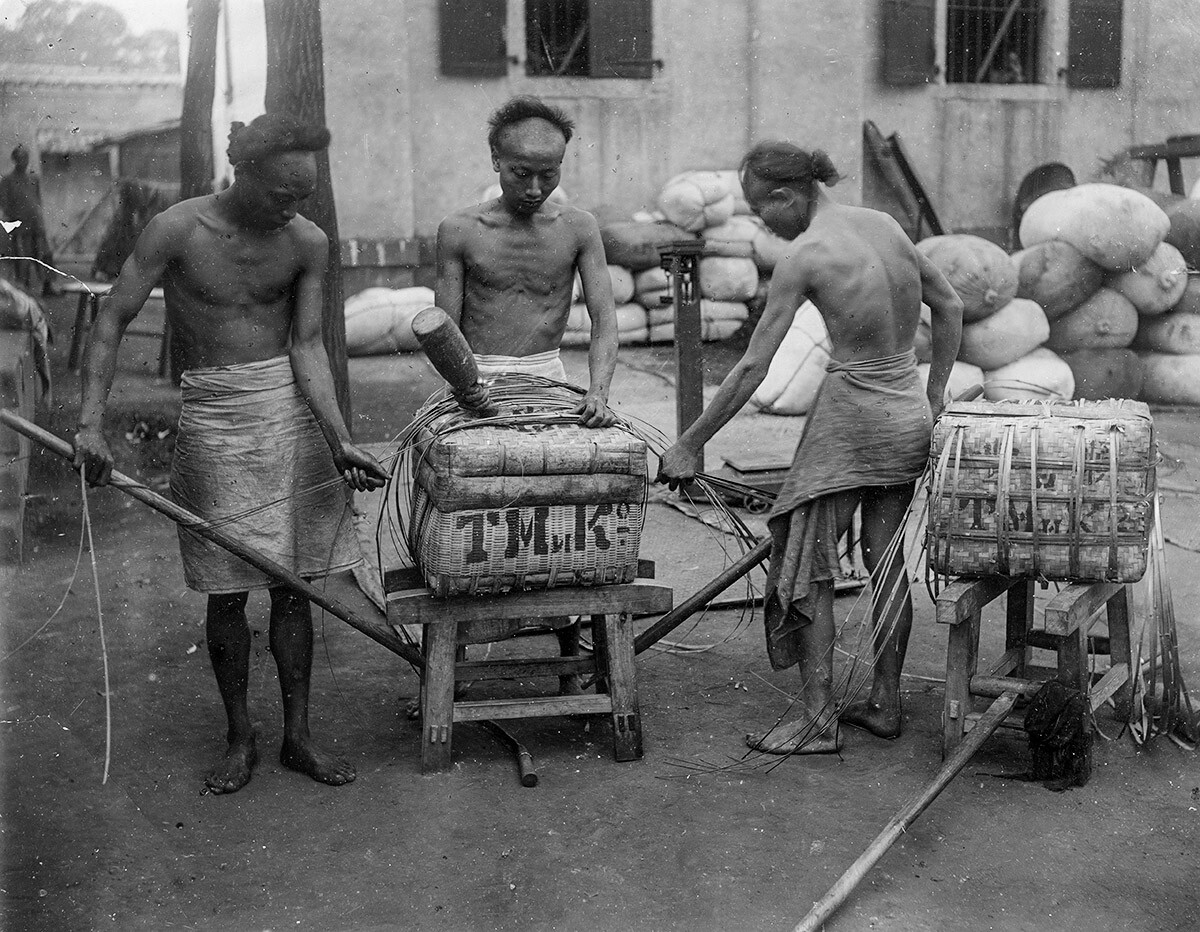
Tea was first brought to Russia in the 17th century: Chinese ambassadors presented it as a gift to Tsar Mikhail Fedorovich. In 1679, the countries signed an agreement on the supply of dried leaves: in exchange, China received furs, fabrics, leather and much more. Until 1862, the overseas drink was transported via Kyakhta and Siberia: overland transportation made the already expensive product even more expensive. So, tea was only available to very wealthy buyers.
In 1821, Alexander I allowed tea to be sold in taverns and restaurants. In the middle of the 19th century, no less than 360,000 poods (a Russian unit of weight equal to approx. 36 pounds) were imported into the country - almost 6,000 tons! The popularity of the drink grew, but its prices were still too high.
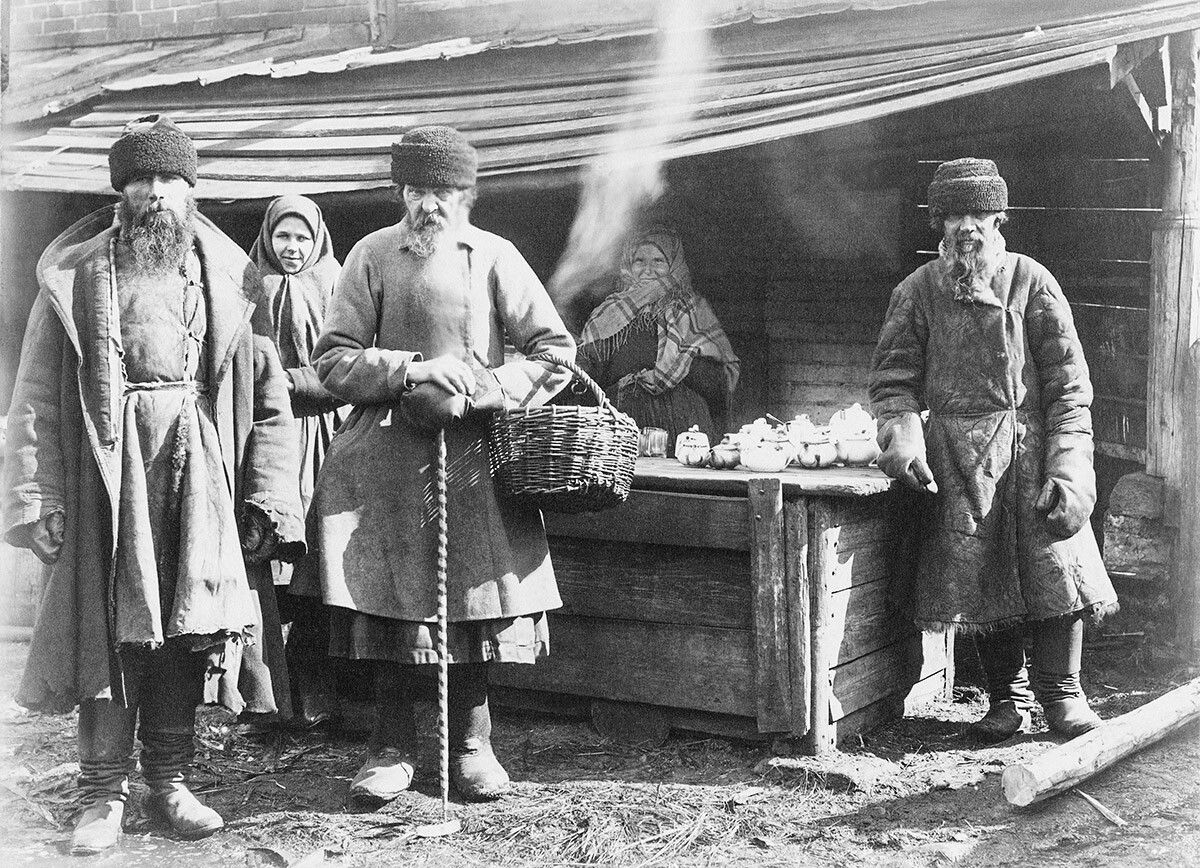
Enterprising people came up with a way to solve the problem. Used tea was dried, cleaned and repackaged for sale. They could even add some fresh leaves to it - for greater authenticity. However, drinking such "tea" could be life-threatening: after all, the used tea leaves were treated with various substances and dyes to give them a natural look.
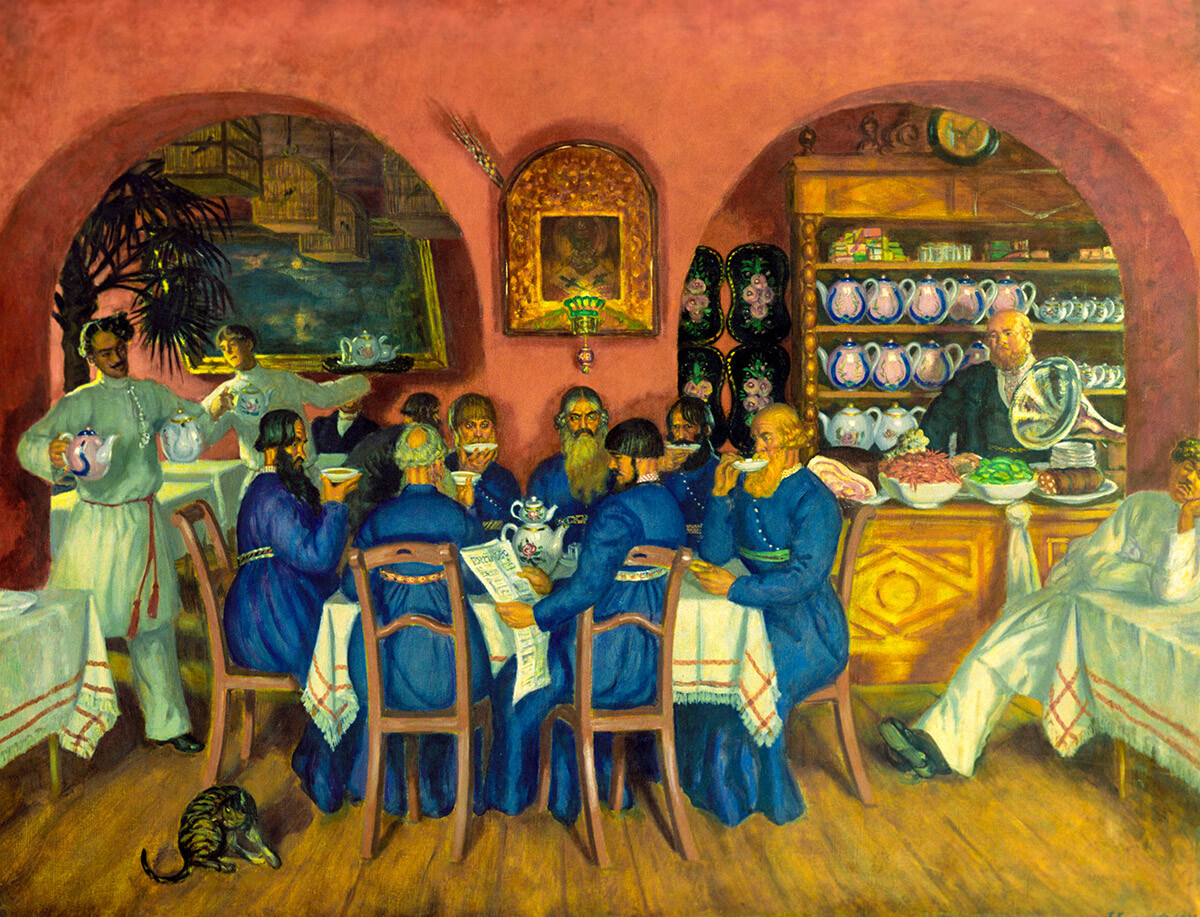
But, there was another alternative - to dry and ferment a Russian raw material - fireweed. It is also commonly known as ‘Ivan-tea’ and has long been known for its medicinal properties. It has helped with ulcers and headaches, especially. Initially, it was collected and then dried in the vicinity of the village of Koporye. Hence the name of the drink - ‘Koporsky’ tea.
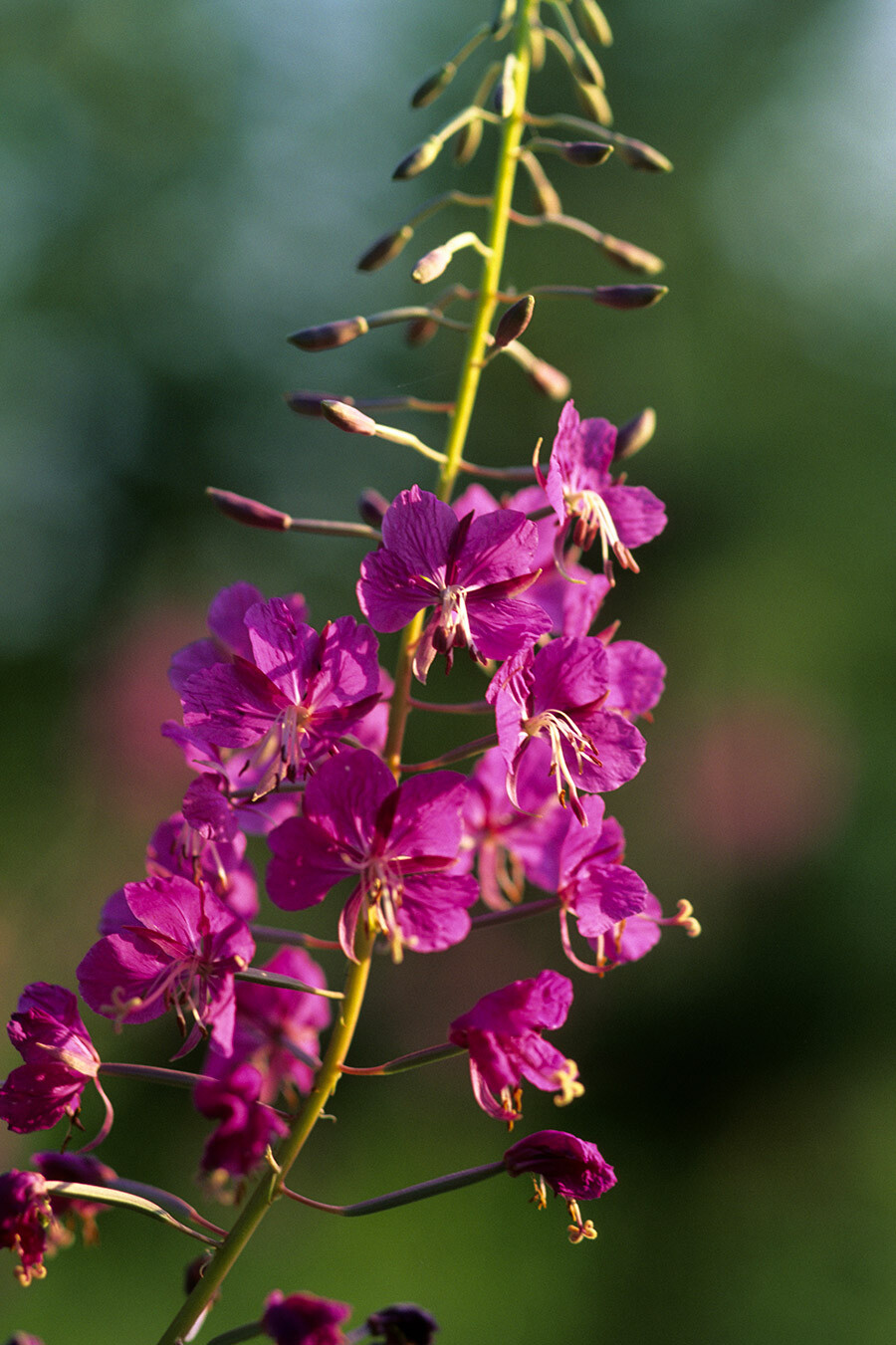
Very soon, the technology was picked up and they began to make it everywhere. Some studies say that several tens of thousands of pounds of ‘Koporsky’ tea were produced near St. Petersburg alone. But, the raw material for it could be collected anywhere - fireweed is an unpretentious plant and grows almost everywhere.
It was mixed into real tea or sold under the guise of Chinese tea and much cheaper - from one to three rubles per pood of leaves (16.3 kg). There was so much ‘Koporsky’ tea that it literally flooded Russia - its quantity was comparable to the real thing.
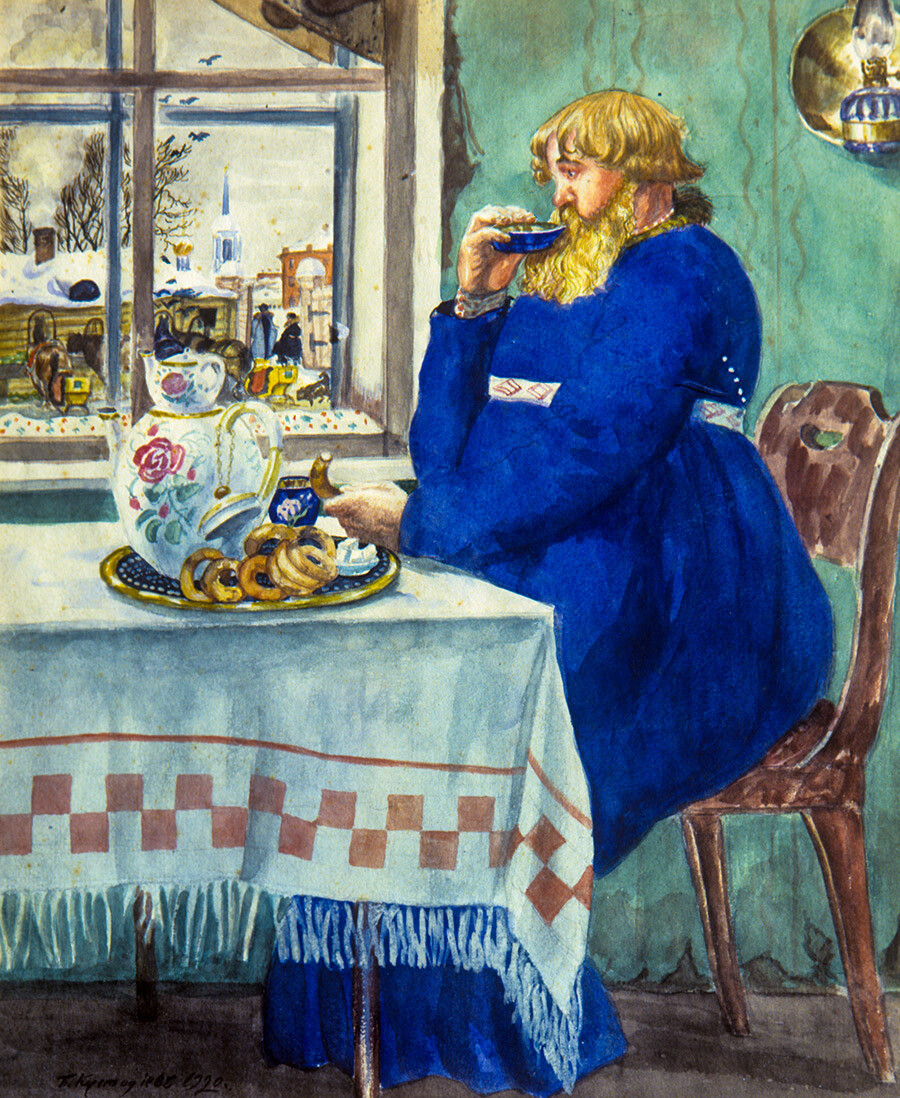
Chinese tea traders tried to fight counterfeiting. They even filed a petition stating "they feel constrained and criticized in their trade by the sale of so-called ‘Koporsky’ tea by small traders and also sold at a high price."
To combat ‘Koporsky’ tea, in 1816, they first banned counterfeiting Chinese tea and, in 1833, the trade in counterfeits. Violators were fined and their goods were confiscated and those who were caught again could be deprived of all rights and sent to prison companies. The decree of Emperor Alexander I stated: "If any of the buyers in stores, rows or otherwise of genuine Chinese tea finds in it an admixture of Koporsky or Ivan tea and this admixture is disclosed and proven by an advertisement where it should be, then about such a seller, as carrying out trade in a false manner and, therefore, not deserving of general trust, in addition to the legal penalty from him, to publish in the newspapers of both capitals." And, in the rural police regulations, there was an article prohibiting the collection and use of fireweed - in pure form or in a mixture with Chinese tea.
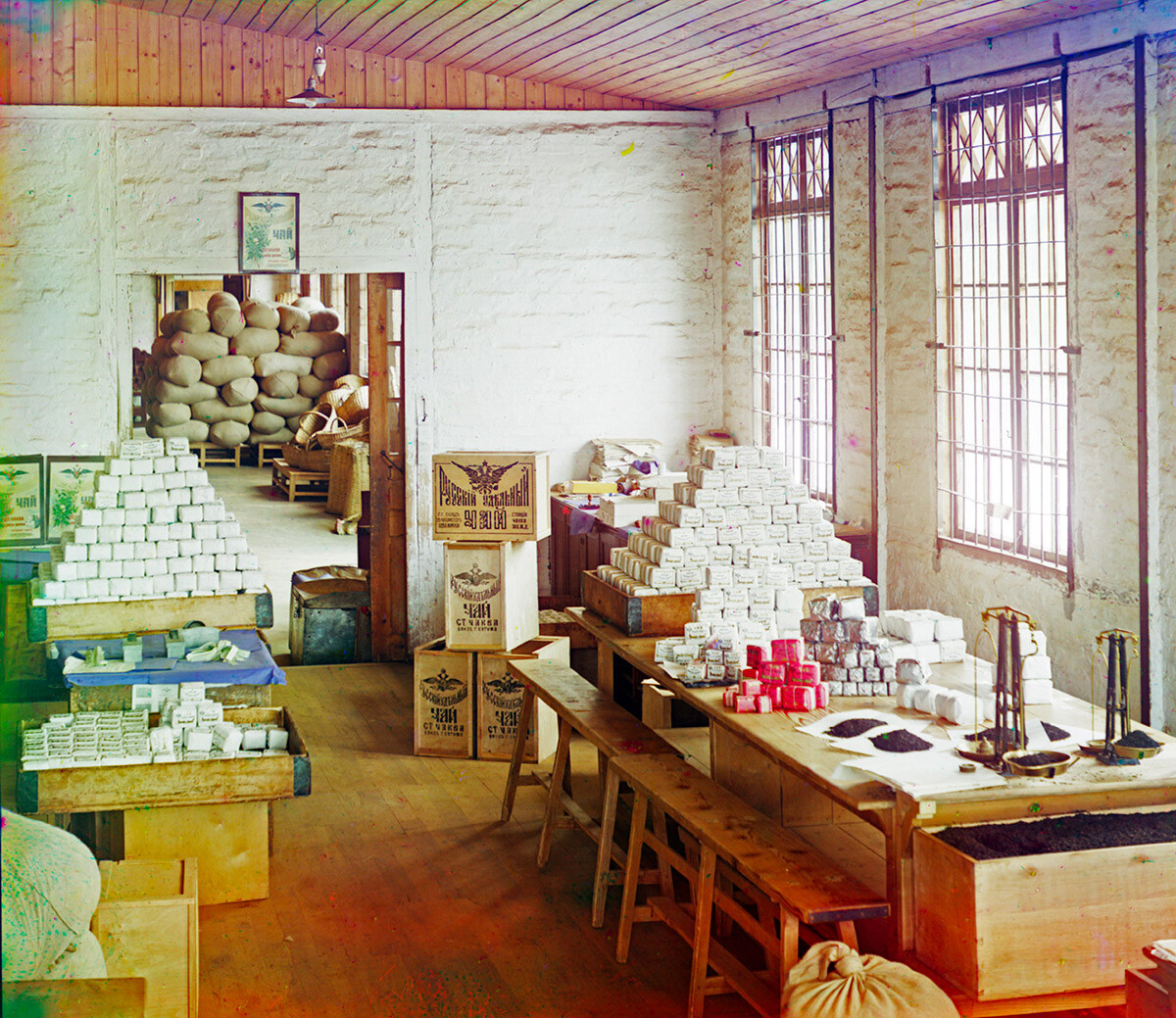
In 1888, a high-profile trial took place: In the dock were the producers of Koporsky tea, brothers Alexander and Ivan Popov. Namesakes of the famous tea merchants Konstantin and Semyon Popov, they sold counterfeit leaves in packaging very similar to the original. The unlucky buyer had no idea that he had paid for a mixture with simple fireweed. Alexander Popov, who took full responsibility, was stripped of all rights and sent into exile to the Tomsk province for life.
Dear readers,
Our website and social media accounts are under threat of being restricted or banned, due to the current circumstances. So, to keep up with our latest content, simply do the following:
If using any of Russia Beyond's content, partly or in full, always provide an active hyperlink to the original material.
Subscribe
to our newsletter!
Get the week's best stories straight to your inbox